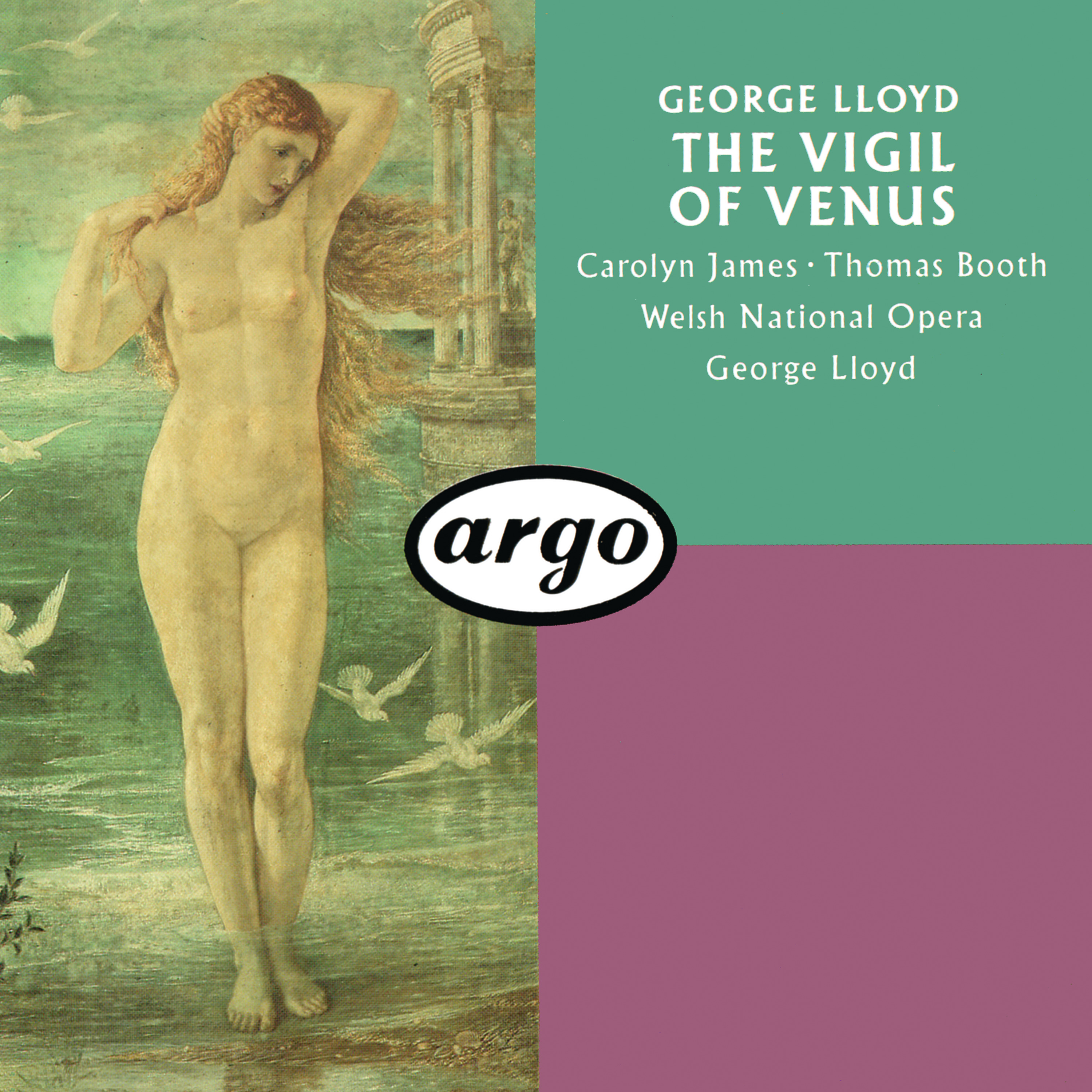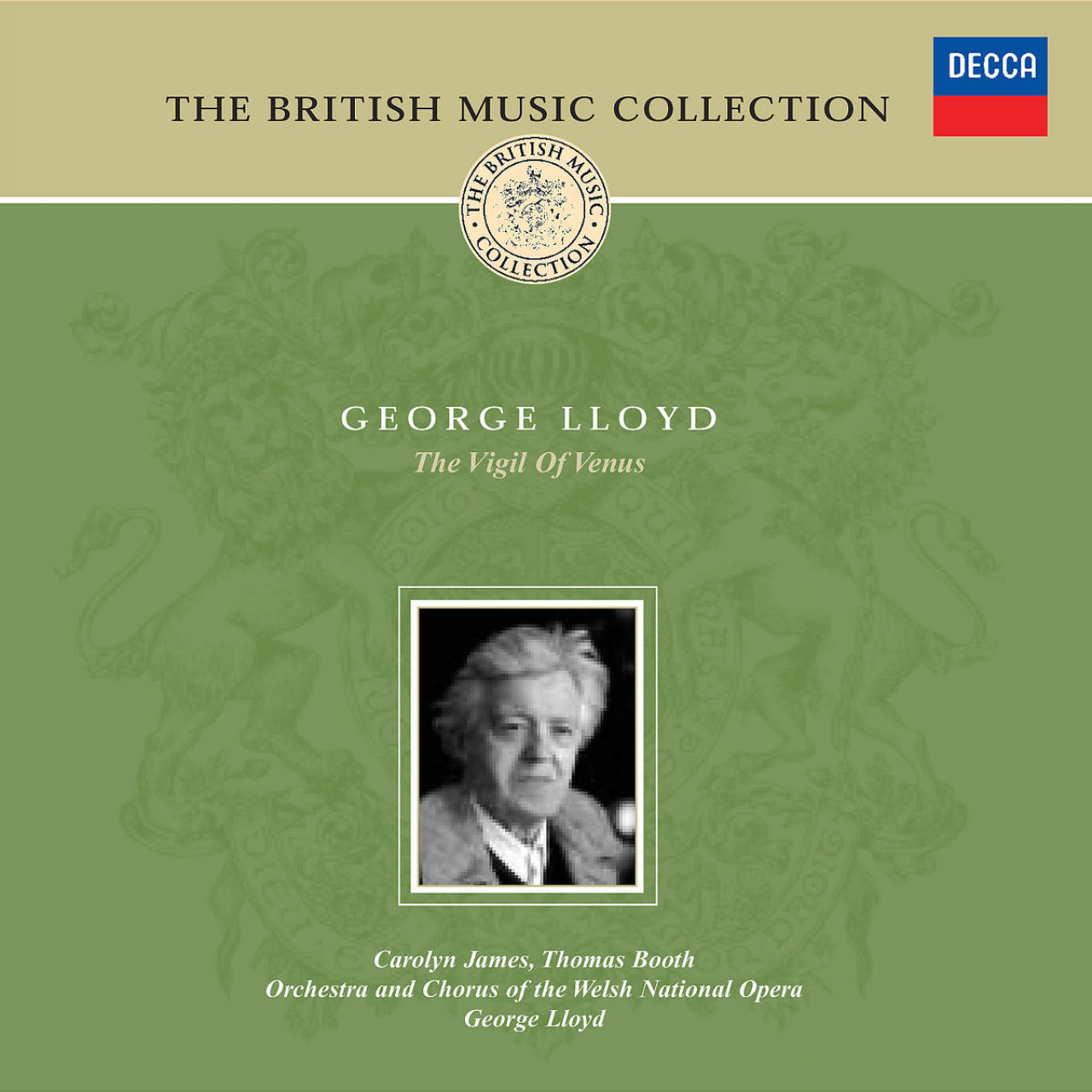Love in Latin
Now, learn ye to love, who loved never – now ye who have loved, love anew.
That is the famous line from the ancient Latin poem Pervigilium Veneris. In the provided translation, there is a lot of talk of spring, love, maidens, pleasures, and the like.
Many comparisons are made between this text and that from Carl Orff's Carmina Burana, jumping on the topic of spring's Earthly love.
George Lloyd's The Vigil of Venus is a nearly 80-minute secular oratorio, replete with large symphony orchestra, chorus, and two vocal soloists. Much of it is full-throated and extrovert, but despite comparisons to the popular Orff work, is not quite as memorable, nor barbaric, in comparison.
Yet, Lloyd's setting of Pervigilium Veneris has many worthy moments. The one which really sticks with me is the penultimate movement for soprano. It has an oddly slinky, dance-like feel, opposite a stately militaristic setting, all of which stands out as something quite different.
Otherwise, there are orchestral colors galore, hair-raising choral paeans, swathes of lyrical mood settings, and striking vocal solos. And of course, adding pipe organ to the concluding movement, brings the work home with tremendous gale forces. All of this is almost too much for a listener in one sitting, although I would love to hear such an event in concert.
The Welsh National Opera Chorus is built for dramatic power, and that is exactly what we get here. One could imagine a tighter, more sensitive choral performance, especially in the a cappella 7th movement, but this would have resulted in a different result completely. As it is, subtlety is out the window and swooning, operatic lines are on the house. Thankfully, the soloists are a delight, with Thomas Booth sounding quite Italianate.
With that statement, one wonders why this wasn't staged as an opera or a ballet. I sense the visual movement might have aided such a gargantuan occasion, especially the languorous, atmospheric portions.
The Welsh National Opera Orchestra, here led by the composer, is very impressive. George Lloyd never makes it easy on the instrumentalists, and their virtuosity is fully on display. As a listener, one is easily blown away in many parts of this long work.
These extravagant forces were originally captured by Decca engineers, and you can sense their skill at the soundboard. Somehow, Albany Records, which recorded most of George Lloyd's works, attained rights from Decca to reissue this performance on their own label. I notice, however, that Lyrita has not reissued it with their comprehensive George Lloyd Signature Editions of 2024, so listeners wanting all of the composer's music must search the back catalogues.
Pervigilium Veneris (Vigil of Venus) is in much the same style of Lloyd's A Symphonic Mass and A Litany. Yet, despite my pleasure in this music, I feel Vigil doesn't quite strike out with the same feeling of success, at least as a whole. This could be due to the excesses of the opera chorus on hand, the sheer length, or some other aspect I haven't nailed down quite yet.
Either way, if you enjoy the large-scaled Romanticisms from Lloyd's works I mentioned earlier, this should be an easy listen. I wouldn't start with this one for those starting out with the composer's music, but there are many pleasures to seek out here.
Works
Pervigilium Veneris (Vigil of Venus)
Soloists
Carolyn James, soprano
Thomas Booth, baritone
Performers
Welsh National Opera Chorus
Welsh National Opera Orchestra
George Lloyd, conductor
Label: Albany
Year: 1990; 1995
Total Timing: 77.58
A grand oratorio in the Romantic tradition.
But, perhaps, this one is too grand. I would love to see it in person, but listening to it can be exhausting.
The performers are excellent, even if the chorus could be more suave.
Find more Lloyd recordings HERE!




Comments
Post a Comment